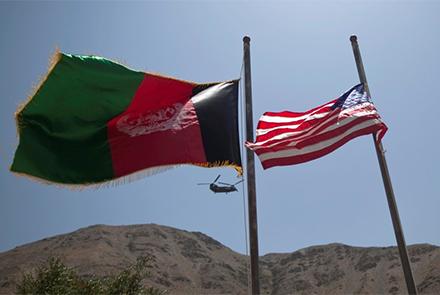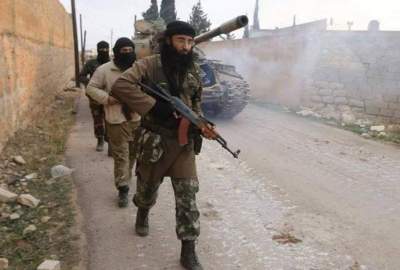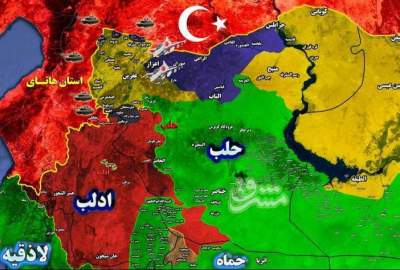Two months after the US-Taliban deal in Qatar, there is nothing as clear as the Trump administration’s firm commitment to provisions of the deal that allow US forces to withdraw from Afghanistan no matter what progress is made in persuading the Taliban to reduce violence or talk to their compatriots.
Publish dateSaturday 30 May 2020 - 12:40
Story Code : 210999
The irony is that Afghan leaders are accustomed to getting Washington’s blank checks and political support, but they have yet to understand that their country is no longer a strategic priority for the national security of the United States. In fact, I believe that in none of the US engagement episodes with the broader Middle East and South Asia did Afghanistan have enough strategic significance to qualify as the United States' indispensable partner.
Kabul’s changing romance and divorce with successive US administrations during king Zahir Shah’s reign (November 1933 - July 1973) reduced the chances of building a meaningful partnership between Washington and Kabul, largely because of King Zahir Shah's disinterest in Cold War politics and Washington’s lucrative arms deals with Iran and the oil-rich Gulf states. The communist 1979 coup in Kabul and the US support of the Afghan Mujahideen in the 80s further diminished the prospect of state-to-state strategic cooperation. Afghan Mujahideen were only for tactical use and Washington abandoned them soon after their mission ended as mercenaries fighting the “godless communists.”
The post 9/11 US intervention in Afghanistan, however, changed the course and provided a rare opportunity for building a durable partnership that materialized after more than half a century. Afghans endorsed the notion of building geostrategic ties with Washington and became US partners in the Global War on Terror. Afghanistan’s armed forces, built by Washington and its NATO allies, shouldered the burden of the war on terror with their American counterparts. Similarly, after decades of isolation, ordinary Afghans joined the cause for a fresh start under Washington’s stewardship. Thanks to this partnership, schools and clinics were built, roads were paved, several crucial institutions were established, and Washington continually invested in building Afghanistan’s human capital.
In contrast to the efforts of ordinary Afghans, the Afghan political leadership under President Hamid Karzai and President Ashraf Ghani failed to build an accountable partnership. Supported by Washington in their quest for power, both Karzai and Ghani disappointed Washington when their cooperation was needed the most. Karzai turned into an anti-American pro-Taliban president who, time and again, irritated Washington with his secret deals with Moscow and Tehran.
Under Ghani’s rule, the US-Afghanistan partnership weakened to the extent that Washington shelved Kabul in its peace talks with the Taliban. Excluded from the talks, Ghani adopted his predecessor’s nationalist sentiment of anti-Americanism and initially refused to cooperate on peace. Ironically, almost all of Ghani’s inner circle members are Afghan-American and Afghan western diaspora who enjoy having a home in Washington, London, Amsterdam, Dubai, while running the government in Kabul.
Ghani’s diplomatic envoys to Washington, too, failed to strengthen the US-Afghan partnership through building ties with think tanks, powerful interest groups, and lobbyist institutions. Unlike their counterparts in D.C., senior Afghan diplomats became Twitter trolls of Kabul’s divisive politics and ethnic division.
Now, on the eve of the US departure from Afghanistan, we recall the wasted opportunities by Afghan elites, including former warlords, inexperienced technocrats, opportunistic young diaspora, and former communists, all of which confirms our incapacity to benefit from a rare chance to foster strategic ties with Washington.
On the US side, the majority of organizations, think tanks, and experts who advised both Republican and Democrat administrations on Afghanistan escaped a meaningful engagement with non-traditional but democratic allies and counterparts in Afghanistan. As someone who worked with American diplomats and policy teams in Kabul, I believe that in consultations on issues concerning a strategic relationship with Afghanistan, my American colleagues rarely made efforts to listen to people outside the circles close to the office of Afghanistan’s president, or beyond a bunch of Afghan-American experts whose goal was to protect the president at any cost. On the other hand, educated Afghans, too, failed to do their duty with patriotism and devotion. In some cases, they become partners in crime with the corrupt Afghan leaders.
Unfortunately, the clock cannot be turned back. President Trump has invested in his deal with the Taliban and, perhaps, an American exit from Afghanistan is finally inevitable. Afghan elites will have a hard time getting used to the new circumstances. Therefore, it won’t be surprising to witness a wave of anti-American sentiment expressed by those who owe their political status to American support.
On the contrary, ordinary Afghans are fed up with their corrupt elites. They see no commonality between their lives and those of their leaders. The families of almost all Afghan ministers and leaders are living abroad while ordinary Afghans are receiving the coffins of their sons from a war in which they have no interest. The extremely low turnout of the last presidential elections could be a powerful testimony to the disconnect between Kabul-based elites and ordinary Afghans.
Finally, after two decades of investment in blood and money, Afghans and Americans need to rethink and revisit their partnership. No one has the right to ask Americans to keep financing a kleptocracy in Kabul. Americans, too, have no right to subcontract Afghanistan’s young-but-promising democracy to the Taliban or leaders like Ghani, Abdullah and Karzai. These leaders squandered opportunities to make the system responsible, inclusive, and trusted by the international community and capable of building and sustaining a strategic partnership with Washington.
Arash Yaqin, former US Embassy Kabul, Senior Cultural Affairs Advisor, current Institute of World Politics National Security Researcher.
All are welcome to submit a fact-based piece to TOLOnews' Opinion page.
The views expressed in the opinion pieces are not endorsed or necessarily shared by TOLOnews.
Contributors are responsible for the accuracy of the information in an opinion piece, but if it is discovered that information is not factual, a correction will be added and noted.
Kabul’s changing romance and divorce with successive US administrations during king Zahir Shah’s reign (November 1933 - July 1973) reduced the chances of building a meaningful partnership between Washington and Kabul, largely because of King Zahir Shah's disinterest in Cold War politics and Washington’s lucrative arms deals with Iran and the oil-rich Gulf states. The communist 1979 coup in Kabul and the US support of the Afghan Mujahideen in the 80s further diminished the prospect of state-to-state strategic cooperation. Afghan Mujahideen were only for tactical use and Washington abandoned them soon after their mission ended as mercenaries fighting the “godless communists.”
The post 9/11 US intervention in Afghanistan, however, changed the course and provided a rare opportunity for building a durable partnership that materialized after more than half a century. Afghans endorsed the notion of building geostrategic ties with Washington and became US partners in the Global War on Terror. Afghanistan’s armed forces, built by Washington and its NATO allies, shouldered the burden of the war on terror with their American counterparts. Similarly, after decades of isolation, ordinary Afghans joined the cause for a fresh start under Washington’s stewardship. Thanks to this partnership, schools and clinics were built, roads were paved, several crucial institutions were established, and Washington continually invested in building Afghanistan’s human capital.
In contrast to the efforts of ordinary Afghans, the Afghan political leadership under President Hamid Karzai and President Ashraf Ghani failed to build an accountable partnership. Supported by Washington in their quest for power, both Karzai and Ghani disappointed Washington when their cooperation was needed the most. Karzai turned into an anti-American pro-Taliban president who, time and again, irritated Washington with his secret deals with Moscow and Tehran.
Under Ghani’s rule, the US-Afghanistan partnership weakened to the extent that Washington shelved Kabul in its peace talks with the Taliban. Excluded from the talks, Ghani adopted his predecessor’s nationalist sentiment of anti-Americanism and initially refused to cooperate on peace. Ironically, almost all of Ghani’s inner circle members are Afghan-American and Afghan western diaspora who enjoy having a home in Washington, London, Amsterdam, Dubai, while running the government in Kabul.
Ghani’s diplomatic envoys to Washington, too, failed to strengthen the US-Afghan partnership through building ties with think tanks, powerful interest groups, and lobbyist institutions. Unlike their counterparts in D.C., senior Afghan diplomats became Twitter trolls of Kabul’s divisive politics and ethnic division.
Now, on the eve of the US departure from Afghanistan, we recall the wasted opportunities by Afghan elites, including former warlords, inexperienced technocrats, opportunistic young diaspora, and former communists, all of which confirms our incapacity to benefit from a rare chance to foster strategic ties with Washington.
On the US side, the majority of organizations, think tanks, and experts who advised both Republican and Democrat administrations on Afghanistan escaped a meaningful engagement with non-traditional but democratic allies and counterparts in Afghanistan. As someone who worked with American diplomats and policy teams in Kabul, I believe that in consultations on issues concerning a strategic relationship with Afghanistan, my American colleagues rarely made efforts to listen to people outside the circles close to the office of Afghanistan’s president, or beyond a bunch of Afghan-American experts whose goal was to protect the president at any cost. On the other hand, educated Afghans, too, failed to do their duty with patriotism and devotion. In some cases, they become partners in crime with the corrupt Afghan leaders.
Unfortunately, the clock cannot be turned back. President Trump has invested in his deal with the Taliban and, perhaps, an American exit from Afghanistan is finally inevitable. Afghan elites will have a hard time getting used to the new circumstances. Therefore, it won’t be surprising to witness a wave of anti-American sentiment expressed by those who owe their political status to American support.
On the contrary, ordinary Afghans are fed up with their corrupt elites. They see no commonality between their lives and those of their leaders. The families of almost all Afghan ministers and leaders are living abroad while ordinary Afghans are receiving the coffins of their sons from a war in which they have no interest. The extremely low turnout of the last presidential elections could be a powerful testimony to the disconnect between Kabul-based elites and ordinary Afghans.
Finally, after two decades of investment in blood and money, Afghans and Americans need to rethink and revisit their partnership. No one has the right to ask Americans to keep financing a kleptocracy in Kabul. Americans, too, have no right to subcontract Afghanistan’s young-but-promising democracy to the Taliban or leaders like Ghani, Abdullah and Karzai. These leaders squandered opportunities to make the system responsible, inclusive, and trusted by the international community and capable of building and sustaining a strategic partnership with Washington.
Arash Yaqin, former US Embassy Kabul, Senior Cultural Affairs Advisor, current Institute of World Politics National Security Researcher.
All are welcome to submit a fact-based piece to TOLOnews' Opinion page.
The views expressed in the opinion pieces are not endorsed or necessarily shared by TOLOnews.
Contributors are responsible for the accuracy of the information in an opinion piece, but if it is discovered that information is not factual, a correction will be added and noted.
avapress.net/vdcjhye8huqevhz.92fu.html
Tags
Top hits







